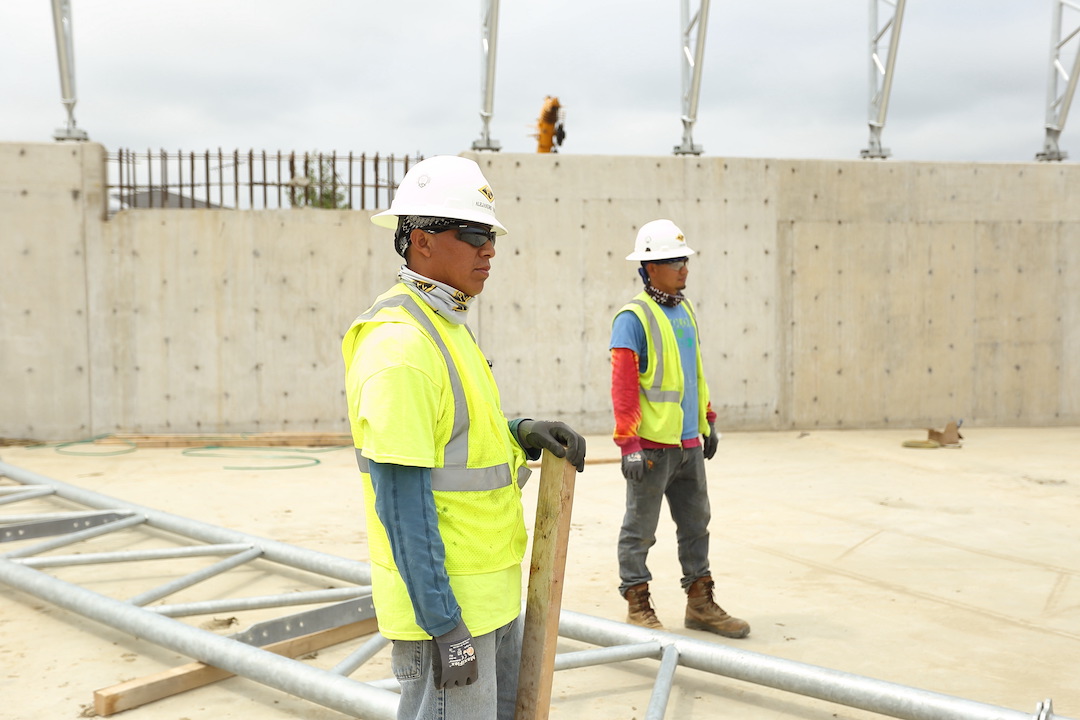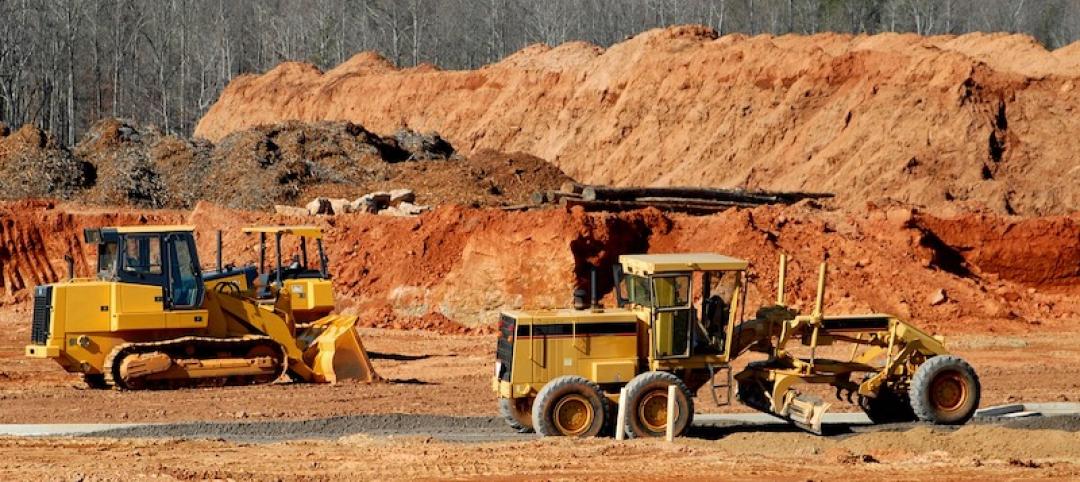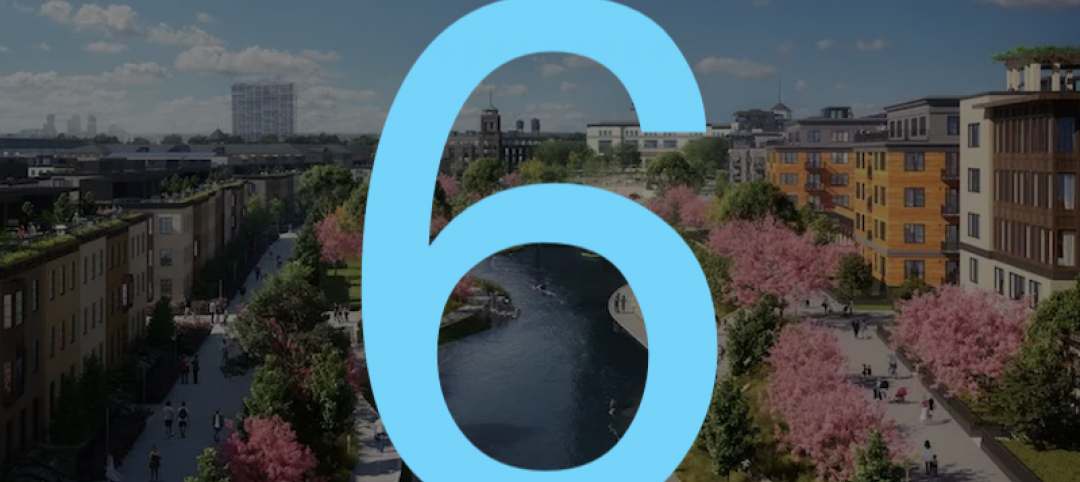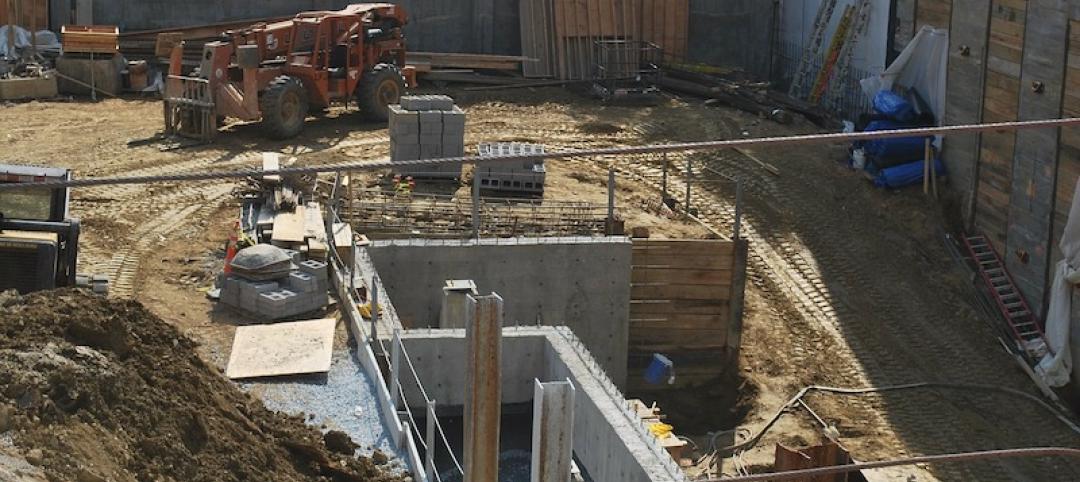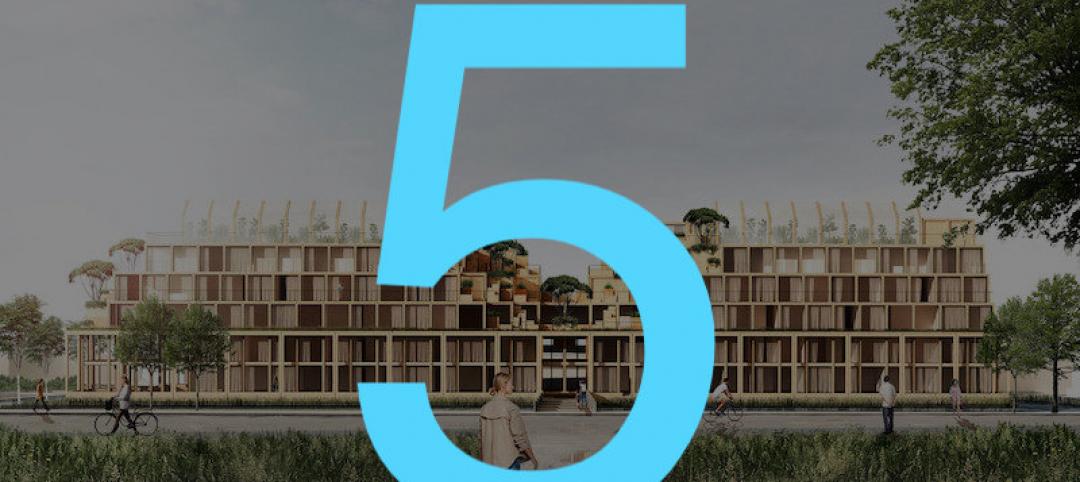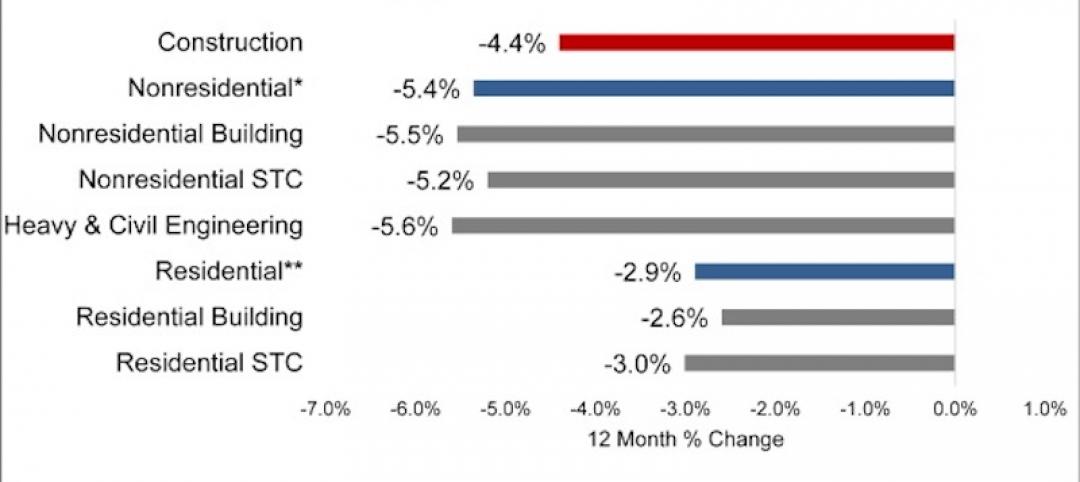Total construction spending edged higher in October, as gains in public and private project types outmatched decreases in single- and multifamily residential outlays, according to a new analysis of federal construction spending data the Associated General Contractors of America released today. Officials noted that public sector investments would likely rise in the near future because of the recently-passed infrastructure bill, but cautioned that labor shortages and supply chain problems were posing significant challenges for the industry.
“It is encouraging to see such a broad-based pickup in spending on nonresidential projects in the latest month,” said Ken Simonson, the association’s chief economist. “But the construction industry still faces major challenges from workforce shortages and supply-chain bottlenecks.”
Construction spending in October totaled $1.60 trillion at a seasonally adjusted annual rate, 0.2% above the September rate and 8.6% higher than in October 2020. Year-to-date spending in the first 10 months of 2021 combined increased 7.5% from the total for January-October 2020.
Among the 16 nonresidential project types the Census Bureau reports on, all but two posted spending increases from September to October. Total public construction spending rose 1.8% for the month, while private nonresidential spending inched up 0.2%. However, for the first 10 months of 2021 combined, nonresidential spending trailed the January-October 2020 total by 4.7%, with mixed results by type.
Combined private and public spending on electric power and oil and gas projects--the largest nonresidential segment--declined 0.6% for the month and lagged 2020 year-to-date total by 1.7%. But the other large categories all rose in October. Highway and street construction spending increased 2.4% for the month, though the year-to-date total lagged the same months of 2020 by 0.8%. Education construction rose 0.2% in October but trailed the 2020 year-to-date total by 9.2%. Commercial construction--comprising warehouse, retail, and farm structures--was nearly unchanged from September to October but was 1.9% higher for the first 10 months combined than in January-October 2020.
Residential construction spending declined for the second month in a row, slipping 0.5% from the rate in September. Nevertheless, the year-to-date total for residential spending was 24.2% higher than in the same months of 2020. Spending on new single-family houses decreased 0.8% for the month but outpaced the 2020 year-to-date total by 25.9%. Multifamily construction spending dipped 0.1% in October but topped the 2020 year-to-date total by 16.6%.
Association officials said that spending on many categories of public construction is likely to increase soon as the investments from the Bipartisan Infrastructure bill begin to flow. But they cautioned that the supply chain challenges and labor shortages were impacting construction schedules and budgets and prompting some owners to delay or cancel projects. They urged the Biden administration to explore new ways to relieve shipping delays and to invest more in career and technical education programs that serve as a pipeline into construction careers.
“Getting a handle on supply chains and encouraging more people to work in construction will go a long way in helping this industry recover,” said Stephen E. Sandherr, the association’s chief executive officer.
Related Stories
Market Data | Jul 20, 2020
Construction employment rises from May to June in 31 states, slips in 18
Recent data from Procore on jobsite workers’ hours indicates employment may have leveled off.
Market Data | Jul 20, 2020
6 must reads for the AEC industry today: July 20, 2020
Never waste a crisis and robotic parking systems help developers optimize parking amenities.
Market Data | Jul 17, 2020
7 must reads for the AEC industry today: July 17, 2020
Kennedy Middle School's new Administration/Family Center and Tips to make optimal use of salvaged materials.
Market Data | Jul 16, 2020
Final NEPA rule will make it easier to rebuild infrastructure, reinvigorate the economy, and continue protecting the environment
Administration’s final reforms to the federal environmental review process fix problems with prior process, maintain environmental rigor, and accelerate needed infrastructure improvements.
Market Data | Jul 16, 2020
5 must reads for the AEC industry today: July 16, 2020
1928 hotel reimagined as a new resiential and cultural hub and Walgreens plans hundreds of doctor's offices at its stores.
Market Data | Jul 10, 2020
5 must reads for the AEC industry today: July 10, 2020
The world's tallest hybrid timber tower and the Florida Gators have a new $65 million ballpark.
Market Data | Jul 9, 2020
6 must reads for the AEC industry today: July 9, 2020
The world's most sustainable furniture factory and what will construction look like when COVID-19 ends?
Market Data | Jul 8, 2020
North America’s construction output to fall by 6.5% in 2020, says GlobalData
Even though all construction activities have been allowed to continue in most parts of the US and Canada since the start of the COVID-19 pandemic, many projects in the bidding or final planning stages have been delayed or canceled.
Market Data | Jul 8, 2020
5 must reads for the AEC industry today: July 8, 2020
AEMSEN develops concept for sustainable urban living and nonresidential construction has recovered 56% of jobs lost since March.
Market Data | Jul 7, 2020
Nonresidential construction has recovered 56% of jobs lost since March employment report
Nonresidential construction employment added 74,700 jobs on net in June.


